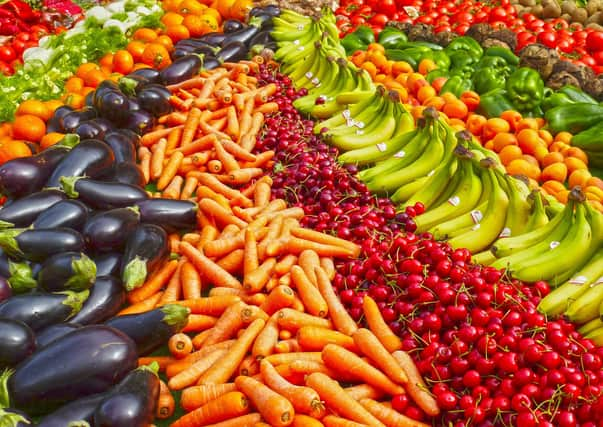Let’s ensure everyone can have the best quality food – Dr Liz Dinnie


Many people either can’t afford enough to eat or have unhealthy diets because that’s what they can afford or get hold of.
Food bank provider the Trussell Trust reported an 89 per cent increase in emergency food parcels given out in April 2020 compared to the same period in 2019. While food parcels may ease the immediate need for food, they do not address the deep-rooted problems in our food systems which mean that not everyone has access to affordable healthy, nutritious food. Researchers at the James Hutton Institute have been looking at ways to make healthy food more accessible to everyone.
Advertisement
Hide AdAdvertisement
Hide AdFood poverty, also known as household food insecurity, should be viewed and tackled as a social issue. The inability to afford or access sufficient healthy, nutritious food occurs as a result of complex and multiple factors, including low wages, high housing costs, a sudden change in household circumstances and a food system which prioritises (cheap) quantity over (more expensive) quality.


Approaches to tackling food poverty address these underlying problems in different ways.
Rather than just handing out a food parcel, activities associated with growing, cooking and eating food can engage communities and individuals. Activities involving food not only help to feed people in dignified and social ways they can address some of the underlying causes that lead to poverty, such as poor mental and physical health, loneliness and isolation, while building skills and developing confidence.
The Scottish Government’s Fair Food Transformation Fund supported projects that took a food-centred, community-led approach to tackling poverty and the problems embedded in deprived communities. However, holistic approaches do not address the deep-rooted problems of an unjust food system. To really tackle food poverty, we need to take a food-systems approach which looks at how our food is produced, processed and sold.
A recent report by the Soil Association argues that shorter supply chains and more locally sourced food could be key to building more equitable food systems.
Short supply chains have been developing over recent years but the food they produce tends to be expensive. Unable to compete on price with dominant global supply chains, producers’ market themselves on quality over quantity.
To reduce food poverty we need to ensure sustainable and regionally sourced food is affordable.
One way for national and local governments to incentivise local producers is via procurement budgets to purchase more local food. This would help to develop local food businesses and promote short supply chains in the public sector.
Advertisement
Hide AdAdvertisement
Hide AdIncentivising the creation of market gardens around cities could also reduce food miles, shorten supply chains and reduce waste.
This requires the support of public, private and third sector organisations. The planning system needs to be used to free up land in and around urban areas for food growing.
Infrastructure for ordering and local distribution needs to be developed, perhaps in the form of a local food hub.
These systemic and structural changes need to be accompanied by education and cultural changes. Creating tasty food from local fresh produce in ways that are not time-consuming or use expensive ingredients will encourage people to buy local fresh food rather than cheap, over-processed food.
Scotland’s ambition to be a Good Food Nation by 2025 should include practical ways to grow local and regional food systems that create employment and use resources such as land for the benefit of the many rather than the few.
Businesses and community-led enterprises that provide affordable, good quality local food also provide employment and training opportunities that underlie the systemic issues of food poverty – poverty and access to affordable nutritious food.
Dr Liz Dinnie is a social scientist at the James Hutton Institute, a world-leading scientific organisation encompassing a distinctive range of integrated strengths in land, crop, waters, environmental and socio-economic science. The Institute takes its name from the 18th century Scottish Enlightenment scientist, James Hutton, who is widely regarded as the founder of modern geology and who was also an experimental farmer and agronomist. www.hutton.ac.uk
Comments
Want to join the conversation? Please or to comment on this article.